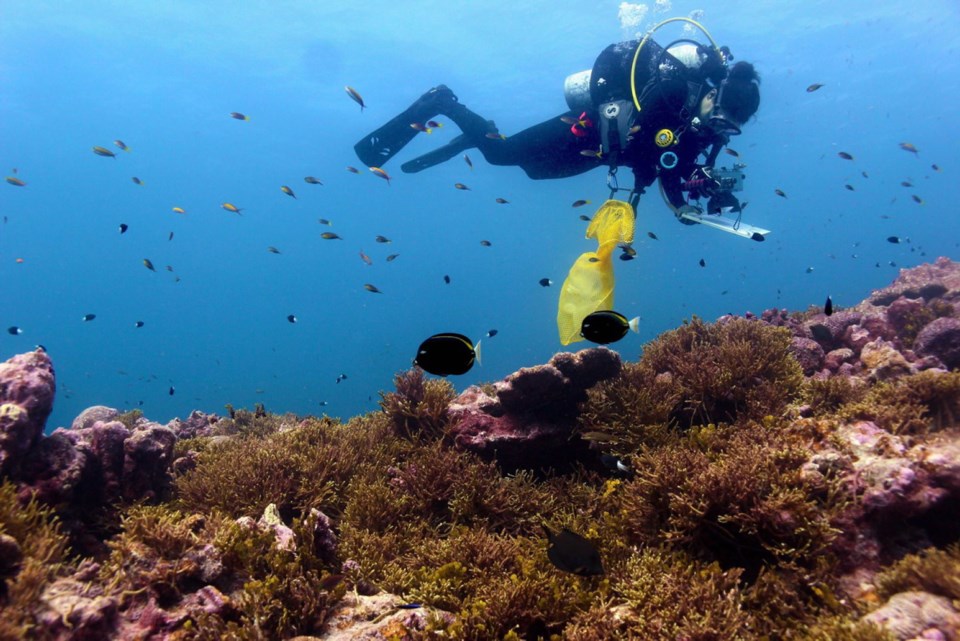University of Victoria researchers have published one of the first studies to assess the direct impact of heat stress on reef fish.
Members of UVic’s biology department documented how higher water temperatures linked to climate change slashed a Pacific Ocean coral reef fish community by half.
“The devastating effects of climate change on corals are well known,” said Prof. Julia Baum, the study’s senior author. “Much less is known about how increasing water temperatures directly affect the thousands of fish species that make their homes on coral reefs.”
For the past decade, Baum has gone annually to study coral reefs on Kiritimati (Christmas Island), a raised coral atoll that is part of the Republic of Kiribati in the Pacific Ocean.
The island, about 2,100 kilometres south of Honolulu, Hawaii, boasts a network of reefs. The research team collects data from 40 monitoring stations.
Every year, a group of between six and eight graduate students from the university travel to the island to take part in research.
They have focused on how climate change is threatening the world’s coral reefs. Corals are highly sensitive to water temperature. When the temperature rises, corals release algae that lives in their tissues — causing the coral to turn completely white, commonly known as coral bleaching. The condition can lead to the death of the coral.
In their latest study, published in the Ecological Society of America journal last month, researchers counted 170,000 individual fish of 245 different species of reef fish at 16 reefs before, during and after the 2015-16 global marine heatwave.
The researchers had two divers swim side by side along a 100-metre-long marked course, counting the fish they encountered.
When researchers returned a year later, they found that water temperatures had returned to normal and most of the fish had also returned. In areas where severe coral loss had occurred, they found the numbers for some species which feed on corals, such as the butterflyfish, had plummeted by 80 per cent.
While previous studies have focused on the knock-on effects of climate-change-induced coral bleaching on reef fishes, this was the first study to focus on how heat stress affected the fish directly.
“Our study shows that reef fishes are also highly vulnerable to rising water temperatures,” Baum said. “Unless we intervene to limit climate change globally, we risk losing not only corals, but entire reef fish communities.”
Coral reef fisheries are worth almost $9.6 billion globally and are a vital source of food and income for hundreds of millions of people in tropical island nations.
The results of the study can serve as a window into the potential long-term consequences of climate change-induced ocean warming for coral reef ecosystems and tropical coastal communities.
Baum said the missing reef fish most likely moved to deeper waters, “hunkered down” and only returned when things cooled down.
“As many reef fishes live close to their optimal or maximum temperatures, even a one-to two-degree rise can be stressful for them,” said co-author Jennifer Magel, who recently graduated from the UVic with a master’s degree in biology.
Baum said: “Climate change may be a double whammy for reef fish. As the ocean temperatures experienced during this heatwave become the new normal over the coming decades under climate change, we may see permanent changes in the distributions and abundances of fish communities on shallow-water coral reefs. These are above and beyond the impacts of the loss of corals on reef fishes.”
The research was supported by Natural Sciences and Engineering Research Council of Canada, the Canadian Foundation for Innovation and the British Columbia Knowledge Development Fund.
To read the study, go to esajournals.onlinelibrary.wiley.com. The study is titled: Direct and indirect effects of climate-change amplified pulse heat stress effects on coral reef fish communities.



